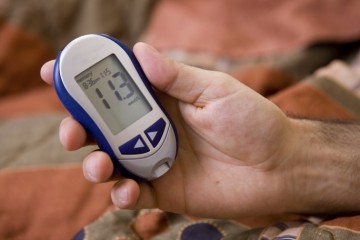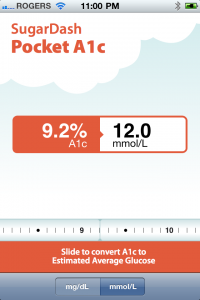By Dr. Kerstin Gustafson and Dr. Colleen Dy on February 26, 2025
Women often seek medical care around the time of menopause, yet, in one survey, only 27% of Canadian women reported that their family physician proactively discussed menopause with them. The root of this care gap is thought to be the paucity of education that medical professionals have received regarding menopause in the last 20 years. Now, we try to include at least one question about menopausal symptoms proactively in our seemingly asymptomatic patients over the age of 40.
By Jamison Falk, PharmD on June 19, 2023
While I’ve been hard on newer medications like SGLT2i for their relatively small benefit in lower-risk patients, recent systematic reviews show that our traditional interventions are no better, and may be worse, at reducing risks of outcomes. I now discuss the option of adding an SGLT2i with patients with diabetes and pre-existing cardiovascular or renal disease or with symptomatic hyperglycemia where blood glucose reduction would be expected to reduce day-to-day symptoms. I reduce or discontinue doses of other antihyperglycemic medications if possible when starting an SGLT2i and I educate patients about potential adverse events.
By Dr. Caitlin Dunne on November 30, 2022
Polycystic ovary syndrome is the most common endocrinopathy in women of reproductive age. It affects 8%–13% of young women and its symptoms are some of the most prevalent concerns that community physicians encounter. In many cases, diagnosis and management can be carried out in a virtual health setting using clinical criteria and judicious use of laboratory investigations.
By Dr. Breay Paty on January 21, 2020
The therapeutic use of testosterone has increased dramatically in the last two decades. The reasons for this appear to be increased frequency of testing and marketing of testosterone replacement for middle-aged and older men. While men with unequivocally low testosterone levels usually benefit from hormone replacement, the risk/benefit ratio for men with equivocal (“borderline”) levels is not clear, especially men who desire fertility.
By Dr. Gordon Francis on April 26, 2017
High Lp(a) is a major CVD risk factor that should be measured and acted upon in patients and families where there is history of premature CV events but lack of clear risk factors, and in patients with known CVD and recurrent events despite treatment to LDL-C target.
By Dr. Jan Hajek on August 3, 2016
For diabetes in particular, observational studies suggest that persons who follow a plant-based diet have a lower risk for diabetes, and an RCT demonstrated reductions in HbA1c in patients with diabetes randomized to a vegan diet compared to the standard American Diabetes Association diet.
By Dr. Breay Paty on February 18, 2015
Nausea can be a common side effect of GLP-1 receptor agonist, which can sometimes be dose limiting. However, this usually improves with time. As a new class of agents, evidence for the long-term safety of incretins is still emerging. Most of the safety questions involve cardiovascular (CV) risk, as well as pancreatitis and pancreatic cancer.
By Drs. Sandra Sirrs and Neda Amiri on February 4, 2013
Ultrasound can be a powerful tool in distinguishing thyroid nodules with malignant potential from benign ones. Thyroid nodules found on physical examination are common. Fewer than 5% of these nodules are malignant.
By Dr. Andrew Farquhar on May 14, 2012
I direct more effort to encouraging physical activity as a critical tool in the management of T2D. I emphasize a healthy diet but stress that weight loss is not the primary goal, exercise is.
By Dr. Breay Paty on January 23, 2012
These oral agents, administered once daily, augment endogenous GLP-1, resulting in an A1C reduction of 0.5 – 0.9%. Since GLP-1 does not directly stimulate insulin, they have the advantage of not promoting hypoglycemia or weight gain.
By Dr. Steve Wong on July 20, 2011
In response to reader requests and the increasing interest in mobile apps, we are launching a series of articles highlighting useful iPhone apps. These will appear approximately once every three months.
By Dr. Breay Paty on June 20, 2011
Recent studies suggest that the relationship between glucose control (A1C) and cardiovascular disease is more complex than we may have realized.
By Dr. Graeme Wilkins on March 14, 2011
Overt hypothyroidism is seen in 0.3 to 0.5% of the general population and subclinical hypothyroidism (high TSH and normal free T4) is seen in 2-3%. Thyroid antibodies are identified in 5-15% of women.
By Dr. Breay Paty on April 15, 2010
Since their introduction, certain contraindications and side effects have been well known, including worsening heart failure, edema (including macular edema) and weight gain.













Recent Comments